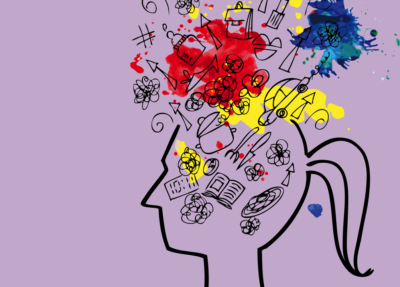Therapy
Working together to make life better.
Whether you’re seeking support for yourself or your child, we understand that sometimes things don’t feel quite “right” and require the help of a professional. Therapy can take many forms, from evidence-based treatments for anxiety and depression to exploring the impact of past experiences or navigating a path to self-knowledge and healing. We will partner with you to clarify your values and meet your mental health goals.
Children
Our child therapy services are designed to support children’s social, emotional, and behavioral needs, from toddlers to teens. We work with families to address a range of conditions, including anxiety, depression, demand avoidance, rejection sensitivity, emotional reactivity, identity exploration, trauma, and complex family dynamics. Our team is dedicated to working with neurodivergent children and adapting therapy approaches to ensure they are affirming. We provide safe spaces for kids to express themselves authentically and help them develop helpful coping strategies while they embrace their neurodivergent identity with compassion and confidence. Our therapists recognize the importance of working with the entire family system to most effectively support our child clients. We do that by actively engaging caregivers in treatment to gather ongoing feedback while equipping them with the skills we teach their children in session.
Our child therapy services are designed to support children’s social, emotional, and behavioral needs, from toddlers to teens. We work with families to address a range of conditions, including anxiety, depression, demand avoidance, rejection sensitivity, emotional reactivity, identity exploration, trauma, and complex family dynamics. Our team is dedicated to working with neurodivergent children and adapting therapy approaches to ensure they are affirming. We provide safe spaces for kids to express themselves authentically and help them develop helpful coping strategies while they embrace their neurodivergent identity with compassion and confidence. Our therapists recognize the importance of working with the entire family system to most effectively support our child clients. We do that by actively engaging caregivers in treatment to gather ongoing feedback while equipping them with the skills we teach their children in session.
Teens
Our teen therapy program addresses the unique challenges adolescents face during this critical stage of development. Our therapists create a safe and supportive environment where teens can identify and express their thoughts and feelings. Building a trusti ng therapeutic relationship is the cornerstone of a successful therapy experience. We utilize evidence-based approaches to help teens navigate anxiety, depression, friendships and dating, academic stress, identity exploration, and complex family dynamics. We are dedicated to working with neurodivergent teens and adapting therapy approaches to ensure they are affirming. From a mutual understanding that teens are the experts on their experiences, we work together to help them build resilience, develop helpful coping strategies, and foster relationships where they can be themselves.
Our teen therapy program addresses the unique challenges adolescents face during this critical stage of development. Our therapists create a safe and supportive environment where teens can identify and express their thoughts and feelings. Building a trusti ng therapeutic relationship is the cornerstone of a successful therapy experience. We utilize evidence-based approaches to help teens navigate anxiety, depression, friendships and dating, academic stress, identity exploration, and complex family dynamics. We are dedicated to working with neurodivergent teens and adapting therapy approaches to ensure they are affirming. From a mutual understanding that teens are the experts on their experiences, we work together to help them build resilience, develop helpful coping strategies, and foster relationships where they can be themselves.
Young Adults
Navigating the transition from adolescence to emerging adulthood can be both exciting and challenging. We understand the unique pressures faced by young adults and college students. Whether you are struggling with the demands of college life, experiencing the uncertainty of entering the workforce, or simply seeking to understand yourself better, we are here to provide the guidance and support you need during this critical phase of life. We are passionate about working with neurodivergent clients, partnering with you to understand your lived experience, develop effective self-care strategies, practice advocacy skills, and foster a positive neurodivergent identity.
Navigating the transition from adolescence to emerging adulthood can be both exciting and challenging. We understand the unique pressures faced by young adults and college students. Whether you are struggling with the demands of college life, experiencing the uncertainty of entering the workforce, or simply seeking to understand yourself better, we are here to provide the guidance and support you need during this critical phase of life. We are passionate about working with neurodivergent clients, partnering with you to understand your lived experience, develop effective self-care strategies, practice advocacy skills, and foster a positive neurodivergent identity.
Adults, Couples & Families
We understand that life’s challenges can affect individuals and their relationships with partners and families. Our adult therapy services cater to a wide range of issues, including anxiety, depression, stress management, relationship concerns, feelings of isolation and being misunderstood, and personal growth. Our team is passionate about working with neurodivergent clients. We will partner with you to recontextualize your lived experience through the lens of neurodivergence, which will feel validating, affirming, and empowering and provide the self-advocacy and coping strategies you need to build a positive neurodivergent identity.
For couples and families, we aim to improve communication, resolve conflicts, and strengthen connections. Whether you are dealing with parenting challenges, relationship issues, or family transitions, our therapists will help you explore these concerns and work toward positive change. Our work with neurodivergent clients extends to couples and families, given the complex challenges that can arise from differences in communication and relational styles.
We understand that life’s challenges can affect individuals and their relationships with partners and families. Our adult therapy services cater to a wide range of issues, including anxiety, depression, stress management, relationship concerns, feelings of isolation and being misunderstood, and personal growth. Our team is passionate about working with neurodivergent clients. We will partner with you to recontextualize your lived experience through the lens of neurodivergence, which will feel validating, affirming, and empowering and provide the self-advocacy and coping strategies you need to build a positive neurodivergent identity.
For couples and families, we aim to improve communication, resolve conflicts, and strengthen connections. Whether you are dealing with parenting challenges, relationship issues, or family transitions, our therapists will help you explore these concerns and work toward positive change. Our work with neurodivergent clients extends to couples and families, given the complex challenges that can arise from differences in communication and relational styles.
Our experienced team of therapists has varied specialties and uses integrated and individualized approaches to best serve the needs of each client. Working together, we will find a plan of action to make things better today than they were yesterday.
Learn More About Our Therapy Modalities

Cognitive Behavioral Therapy (CBT) is a form of therapy that focuses on understanding and altering thoughts and behaviors that are impacting one’s well-being. Treatment focuses on identifying faulty thought patterns that are causing distress and replacing them with more flexible and realistic ways of thinking. Strategies to change thinking patterns typically involve recognizing distortions in thinking, developing enhanced coping skills, and better understanding the motivations of self and others. CBT treatment also involves changing problematic behavioral patterns through exposure, role play, and mindfulness techniques. The therapist and client work collaboratively to identify goals and strategies to help the client develop more effective ways of coping.Psychoeducational and Neuropsychological testing is an important first step in understanding the nature of an academic, behavioral and/or emotional concern. Testing is an opportunity to gain valuable information regarding students learning styles in order to optimize their academic experience and confidence. Evaluations include tests of intellectual functioning, information processing, executive functioning, academic achievement, and social-emotional/psychological functioning to clarify diagnosis and develop a roadmap for treatment.

Dialectical Behavior Therapy (DBT) is a type of cognitive-behavioral therapy that focuses on helping individuals manage difficult emotions and improve interpersonal relationships. It is particularly effective for people struggling with emotional dysregulation, such as those with borderline personality disorder, depression, anxiety, and self-harm behaviors. DBT therapy includes teaching coping skills in four key areas: mindfulness, distress tolerance, emotional regulation, and interpersonal effectiveness. The therapy emphasizes balancing acceptance of current realities with efforts to change unhelpful behaviors.

Acceptance and Commitment Therapy (ACT) is a mindfulness-based form of behavior therapy that encourages clients to learn how to live a full and valued life in the moment while also experiencing difficult thoughts or feelings. In contrast to other therapeutic models, ACT proposes that it is futile to change or control our thoughts and feelings and focuses on other processes to lead to change. To use the acronym of ACT, this approach focuses on encouraging clients to Accept that difficult experiences are a part of living, Choose a direction they would like their life to move toward, and Take action to move towards their life goals.

Eye Movement Desensitization and Reprocessing (EMDR)
EMDR is a form of psychotherapy that helps individuals heal from the emotional distress caused by difficult life experiences. It includes 8 phases of treatment that begin with history-taking, psychoeducation, and rapport building. Next, the therapist teaches the client various stress-reduction strategies to use during and in-between sessions. Once the client feels comfortable using these skills, they work with the therapist to identify a specific traumatic memory. The client is guided through a visualization of the memory as well as any thoughts and feelings associated with it while the therapist provides sets of bilateral stimulation. These sets include gentle tactile stimulation of the hands through a device held by the client. This process is repeated until the client reports no distress related to the target memory and can reframe their thought process associated with the target memory. EMDR does not require the client to talk about any part of the target memories.

Psychodynamic, or Insightful therapy’s goal is to develop a person’s insight about how their past experiences influence their present functioning. Therapists encourage clients to speak freely and openly about what is on their mind and support them to identify unconscious patterns that have developed over time. By bringing to light these unconscious feelings, thoughts and beliefs, clients can make shifts in their current behavior and relationships to lead healthier, more fulfilling lives. Treatment typically involves meeting weekly with a therapist for several months up to multiple years.

Supportive Parenting for Anxious Childhood Emotions (SPACE) is a parent-based treatment program developed by Eli Lebowitz at the Yale Child Study Center for children and adolescents with anxiety, OCD, and related problems.
The program includes psychoeducation about anxiety disorders and about ways in which parents can help alleviate their children’s symptoms and enhance their functioning. The program also involves important practical steps such as identifying ways in which parents can modify their own behavior to help their child, as well as specific tools and techniques on how to implement the treatment at home. The main changes that parents learn to make are to introduce or increase supportive responses to the manifestations of their child’s anxiety, and to reduce accommodations they have been making to their child’s symptoms.

A child’s primary language is play. During play therapy, children work one-on-one with a therapist who supports their ability to express their thoughts, feelings, and ideas through play, the primary mode of communication. While the therapist is an active participant, the child is directing the play. The therapist utilizes a variety of toys, such as action figures, sand trays, animals, modeling clay, art supplies, etc., to appeal to a variety of interest, and comments during the session on the ways in which the child utilizes various objects during the play. Through this relationship with the therapist, the child learns to express themselves in a supportive, empathic, safe, accepting environment. This ultimately brings greater awareness of their feeling states and interpersonal needs. While parents often work with their child’s therapist in adjunct meetings, play sessions are individual sessions for the child.

Expressive arts therapy is an alternative process to express thoughts and feelings, reduce stress and to learn how to manage behaviors and emotions. Combining psychotherapy and art encourages exploration of emotions through a different mode of communication. Young children especially, may not have the ability to express themselves verbally. While using familiar materials, expressive arts therapy helps them to explore their worries and emotions more organically, allowing for expression and better understanding.

